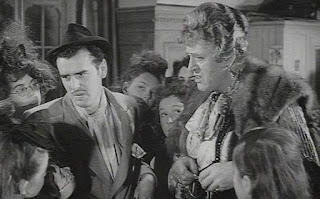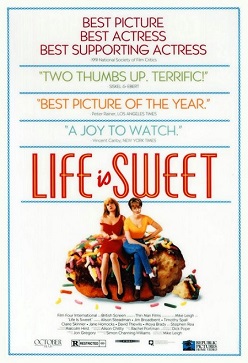Writer: Paul Laverty
Composer: George Fenton
AFI Rank: -
BFI Rank: 91




The BFI 100 is full of these gritty, realistic portrayals of life in working class britain. Their place in the list comes from a real pride we have in our ability to get these these movies even made at all. They are virtually impossible in a hollywood system based solely on box office numbers. But their real value is that they capture a time and place in a way that no documentary really can and leave something truly valuable for future generations.
Ken Loach is one of the master's of this kind of working class british cinema and he has two spots on the BFI list with both My Name Is Joe (#91) and one of the most acclaimed british films ever made, Kes (#7). He started in television with truly impact-full docudramas such as Cathy Come Home in 1964. He made Kes just five years later. I watched Kes for the first time in grammar school and until seeing My Name Is Joe it was the only Loach film I had ever seen. It had been sitting as the next movie in my list for a long time as I summoned up the willpower to sit through it. In the end I am glad I did.
Peter Mullan delivers an incredible performance as the films central character and it earned him the award for best leading actor at the 1998 Cannes Film Festival. An even bigger achievement once you consider he was up against Roberto Benigni for Life Is Beautiful, for which Benigni won an Oscar. He had started with Loach on Riff-Raff in 1991 and had squeezed in Braveheart and Trainspotting before Joe. Louise Goodall had also worked with Loach before on Carla's Song and turns in a memorable performance here. David Hayman is a nice choice too. Much of the supporting cast were not professional actors and were effectively playing themselves, even to the point that the police disrupted a shoot as they recognized one of the actors from a previous offense. The casting and script (with all 200+ f-words) is what keeps Joe so grounded in reality and ultimately makes it a truly great film rather than the average one it could so easily have been.
Joe is the second film that Paul Laverty and Ken Loach made together and they have been in constant collaboration since. I recently watched Bread & Roses which came just two years after Joe and is in itself a great movie, and the first foray into the US for Loach. They clearly work well together and Carla's Song and Sweet Sixteen are definitely on my to watch list.
Getting a copy to watch here in the US is unsurprisingly difficult. The only place I could find it in the end was via Amazon Instant Video and then only for purchase (the rental option conveniently disappeared just weeks before I bit the bullet and decided to watch it). The quality is good enough for the source material and with no other release in sight is really your only option. As with Trainspotting I have read Joe is often shown in the US with subtitles due to the strong Glaswegian accents. Hard to imagine needing them to be honest but something to think about if you don't know what PBS is.
Joe is not a feel good movie with a Hollywood ending and that may be the best reason to force yourself to watch it. Great filmmaking is about making an emotional connection with your audience and leaving them with something to think about other than where they parked the car. My Name Is Joe delivers on all of that and more and is without doubt Crucial Cinema.













